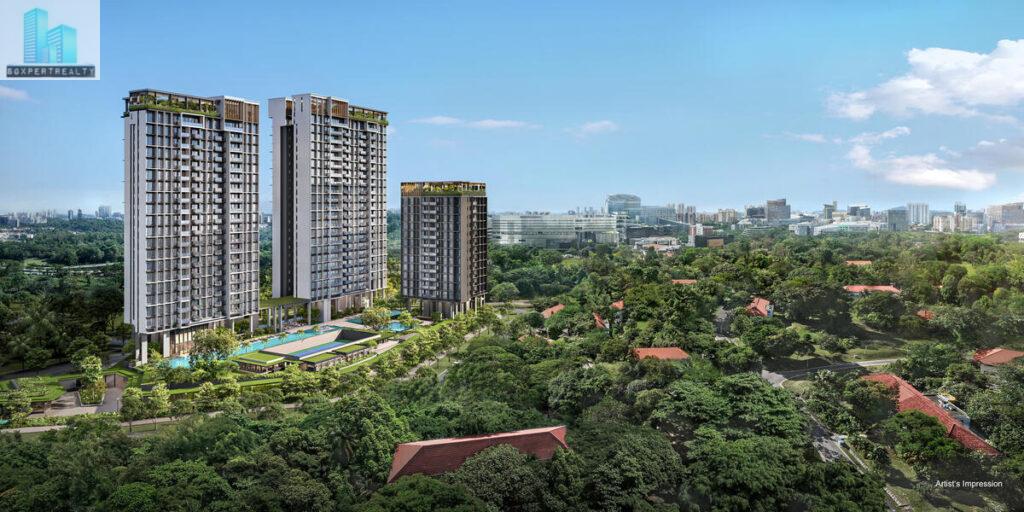Investing in property can open doors to financial freedom, yet in Singapore—a bustling, vibrant hub of opportunity—many myths cloud the decision-making process. The allure of high returns often dances alongside whispers of impending risks, birthing misconceptions that can mislead even the savviest investors.
Is buying property in this city-state just a game for the elite? Or can ordinary folks, too, carve a niche in the thriving real estate market? From misconceptions about affordability to doubts surrounding market stability, this article aims to debunk the common myths that impede potential investors. By navigating through these fallacies, we can illuminate the path toward smarter investment choices, unraveling what it truly means to invest in Singapore’s dynamic property landscape.
Myth 1: Only Rich Investors Can Afford Singapore Properties

One of the most pervasive myths surrounding property investment in Singapore is the belief that it’s a playground exclusively for the wealthy elite. This stereotype, however, oversimplifies a diverse market replete with opportunities for investors from various financial backgrounds.
Yes, the city-state is home to luxury developments that demand a premium, such as the Skye at Holland condo, but there are also numerous affordable options scattered across rising neighborhoods. For instance, emerging districts often provide entry-level investments or public housing options (HDBs) that are accessible to first-time buyers or those with modest savings.
Furthermore, with the right knowledge and research, savvy investors can tap into the potential of these less-recognized areas, proving that wealth isn’t the only passport to property ownership in Singapore. In reality, strategic planning, awareness of market trends, and sound financial management can pave the way for a broader spectrum of investors, democratizing the property investment landscape.
Myth 2: Property Prices Always Increase in Singapore

While Singapore is often painted as a canvas of unyielding property price appreciation, the truth tells a more nuanced story. It’s easy to assume that, given the island nations robust economic landscape and limited land supply, property values are on a perpetual upswing.
Yet, history reveals moments of stagnation and decline—notably during economic downturns or when government interventions cool the market. Factors such as the global economic climate, population growth rates, and prevailing policies all play significant roles in influencing property trends. Consider the sudden shifts brought about by the COVID-19 pandemic; demand faltered, and it took time for recovery to materialize.
Additionally, appreciating price trends do not guarantee consistent profitability, as individual property performance can vary widely. To navigate the Singapore property market effectively, one must look beyond the myth and embrace a comprehensive understanding of cyclical trends and economic indicators.
Myth 3: Foreigners Cannot Invest in Singapore Real Estate
This widespread belief often stems from confusion over Singapores property regulations, but the reality is far more welcoming. Foreigners are indeed allowed to purchase certain types of properties, particularly private residential units, as long as they navigate the right channels. For instance, although landed properties are generally restricted to Singapore citizens, foreigners can invest in condominiums and apartments, often with impressive returns.
Furthermore, the Singapore government has implemented measures to attract foreign investment, making it a magnet for property buyers worldwide. With a stable economy, transparent legal framework, and strategic location, Singapore not only offers a lucrative real estate market but also an opportunity for global citizens to call it home—if only they know where to look.
Conclusion

In conclusion, navigating the Singapore property market requires a clear understanding of the facts rather than succumbing to common myths. By debunking misconceptions about investment potential, financing, and market fluctuations, investors can make informed decisions that align with their financial goals.
Properties like Skye at Holland exemplify the promising opportunities that can be found in this vibrant city-state, showcasing the importance of doing thorough research and seeking expert advice. As Singapore continues to evolve as a key player in the global real estate market, embracing accurate information will empower both new and seasoned investors to unlock the true potential of their investments.
 Alternative News
Alternative News




